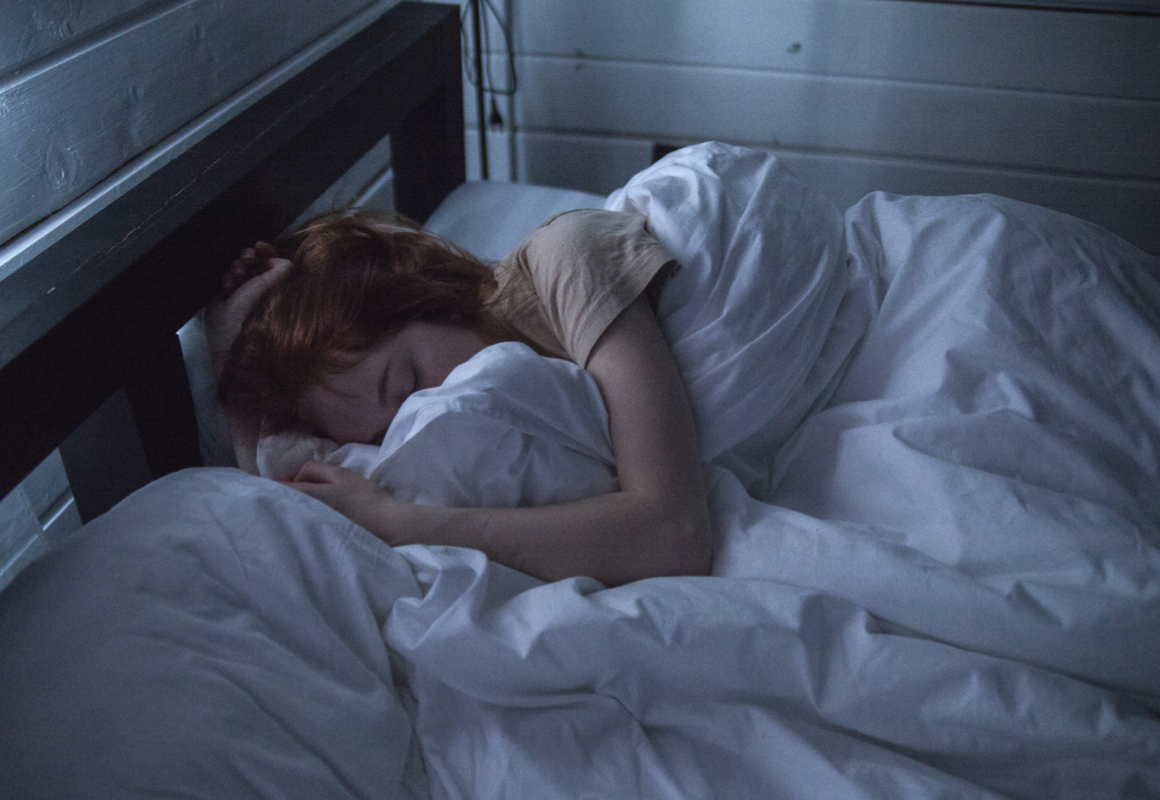More than just an act of rest, sleep is a vital process that affects many facets of our well-being.
At the heart of these functions is the heart, which, even while we sleep, reflects the intricacies of our health and sleep cycles.
In this article, we'll delve into the fascinating world of heart rhythm during sleep, explore its impact on our health, and how understanding it can light our way to a healthier life.
Heart rate during sleep 😴
Heart rate, a vital indicator of our health, undergoes significant variations during our different sleep phases.
Understanding these variations can not only enrich our knowledge of our own bodies, but also shed light on possible disorders or anomalies.
The sleep cycle and its phases 💭
Sleep isn't just a matter of closing your eyes and waking up the next morning.
It's a complex process involving different phases, each with a distinct impact on our heart rate.

1️⃣ Light sleep (or non-REM sleep): When we start to fall asleep, we first enter light sleep.
During this phase, the heart rate begins to slow.
It's not deep sleep yet, but our hearts calm down, reflecting our initial state of relaxation.
2️⃣ Deep sleep : Here, we are totally immersed in sleep.
Our heart slows down more, adopting a steady, regular rhythm.
This is an essential time for physical and mental recovery.
During this phase, our body actively works to regenerate tissues, consolidate memory and restore energy.
3️⃣ REM sleep (Rapid Eye Movement) Although this stage is often associated with vivid dreams, our heart rate can vary slightly.
The eyes move rapidly under the eyelids, and the heart, in sync with this dream state, may show fluctuations, although it generally remains more active than in previous phases.
Each stage of this cycle plays a crucial role in ensuring quality rest.
And our heart rate, a faithful witness to these stages, adapts and fluctuates throughout the night to give us the best possible sleep. 🛌
Sleep-related cardiac disorders
Sleep is essential to our general well-being, but for some, this period of rest can also reveal or aggravate underlying heart problems.
The correlation between sleep disorders and heart problems is well established, and a thorough understanding of these links can help with better prevention and management. 🩺
1️⃣ Sleep apnea Obstructive sleep apnea (OSA) is the sleep disorder most commonly associated with heart disease.
It is characterized by interruptions in breathing during sleep.
Even brief stops can cause oxygen depletion, forcing the heart to work harder.
In the long term, untreated OSA can lead to hypertension, arrhythmia, heart disease and even heart failure.
2️⃣ Insomnia : Although less direct than sleep apnea, insomnia can also have cardiac consequences.
People suffering from chronic insomnia may be at increased risk of hypertension, arrhythmia and heart disease.
Prolonged sleep deprivation puts the body under stress, which can increase blood pressure and heart rate.
3️⃣ Restless Legs Syndrome This disorder, characterized by an irresistible urge to move the legs during periods of rest, is often associated with sleep disturbances.
Studies have shown that it may also be linked to an increased risk of cardiovascular disease, particularly in women.
It is vital to take account of sleep disorders in the prevention and treatment of heart disease.
A good night's sleep is not only beneficial for mental well-being, but also plays a key role in overall heart health. 🌙
Optimize your heart rate for better sleep 🛏️
A regular heartbeat promotes restful sleep, while irregularities can be a sign or cause of restless nights.
In this quest for optimal rest, it's essential to tame and optimize this rhythm.
Let's discover together how to harmonize heart and mind for serene, beneficial nights. 🌌
Technology at the service of sleep
Technological progress has provided innovative solutions to improve sleep quality.
From gadgets to apps, technology has proved a valuable ally for those seeking to optimize their nights and understand their sleep habits.
1️⃣ Wearables and sleep trackers : Connected watches and bracelets, such as Fitbit, Apple Watch or Garmin, track sleep cycles, analyze data and provide personalized recommendations.
These devices use sensors to monitor movement, heart rate and even oxygen saturation throughout the night, offering a detailed insight into different sleep phases.
2️⃣ Wake-up and dawn simulation lamps : These lamps mimic sunrise and sunset to help regulate the circadian rhythm.
When you wake up, they gradually increase the brightness to simulate dawn, facilitating a natural, revitalizing awakening.
In the evening, they reproduce a sunset by dimming the light, helping the user to prepare for rest.
3️⃣ Meditation and relaxation applications : Apps such as Calm, Headspace and Insight Timer offer guided sessions to help you relax, meditate and prepare for sleep.
They are designed to reduce stress and anxiety, often responsible for insomnia.
4️⃣ Smart mattresses and pillows : Some modern mattresses incorporate sensors that adapt the level of firmness or temperature to the user's preferences.
Smart pillows can also analyze sleep quality and adjust their shape for better cervical alignment.
Incorporating technology into the night-time routine offers undeniable advantages.
Used properly, it can transform restless nights into restorative slumbers and enrich our understanding of sleep patterns for better overall health. 📱

Tips for optimum heart health at night
A healthy heart means a healthy life.
Even while we sleep, our heart continues to work tirelessly to deliver oxygen and nutrients to every cell in our body.
Ensuring optimal heart health at night is therefore crucial, and here are a few tips to guide you:
1️⃣ Watch your sleep: Disorders such as sleep apnea can increase the risk of heart problems.
If you snore loudly or often wake up out of breath, it would be wise to consult a specialist. 😴
2️⃣ Maintain a healthy weight: Excess weight, especially around the abdomen, can put extra pressure on the heart, especially at night.
A balanced diet and regular physical activity can help maintain an optimal weight.
3️⃣ Avoid caffeine and alcohol before bedtime: These substances can disrupt your sleep and increase your heart's workload.
Try to consume them in moderation and avoid them at least 3-4 hours before bedtime.
4️⃣ Consult regularly : Regular cardiac check-ups are essential to identify any potential problems.
If you are looking for quality service, clinics specializing in cardiological testing, such as the oursOur specialists offer detailed examinations and personalized advice to ensure that your heart is functioning optimally, even during the night.
5️⃣ Manage stress: Chronic stress can have a negative impact on heart health.
Relaxation techniques such as meditation or deep breathing can help calm your mind before bedtime.
Maintaining a healthy heart requires continuous care and attention.
By working closely with specialized professionals, such as those at our clinic, you can keep a watchful eye on this essential organ, ensuring peaceful, restorative nights. ❤️
The heartbeat during sleep is like a silent mirror of our overall health, reflecting the internal dynamics of our body at rest.
Understanding and caring for our heart, especially during those crucial hours of rest, is an investment in our overall well-being.
Whether it's adopting good nighttime habits, using technology to better understand our sleep or regularly consulting cardiac experts, every step counts. 🌕
For more advice, book an appointment at one of our four clinics in Mascouche, Laval and Vaudreuil-Dorion. 🏢



